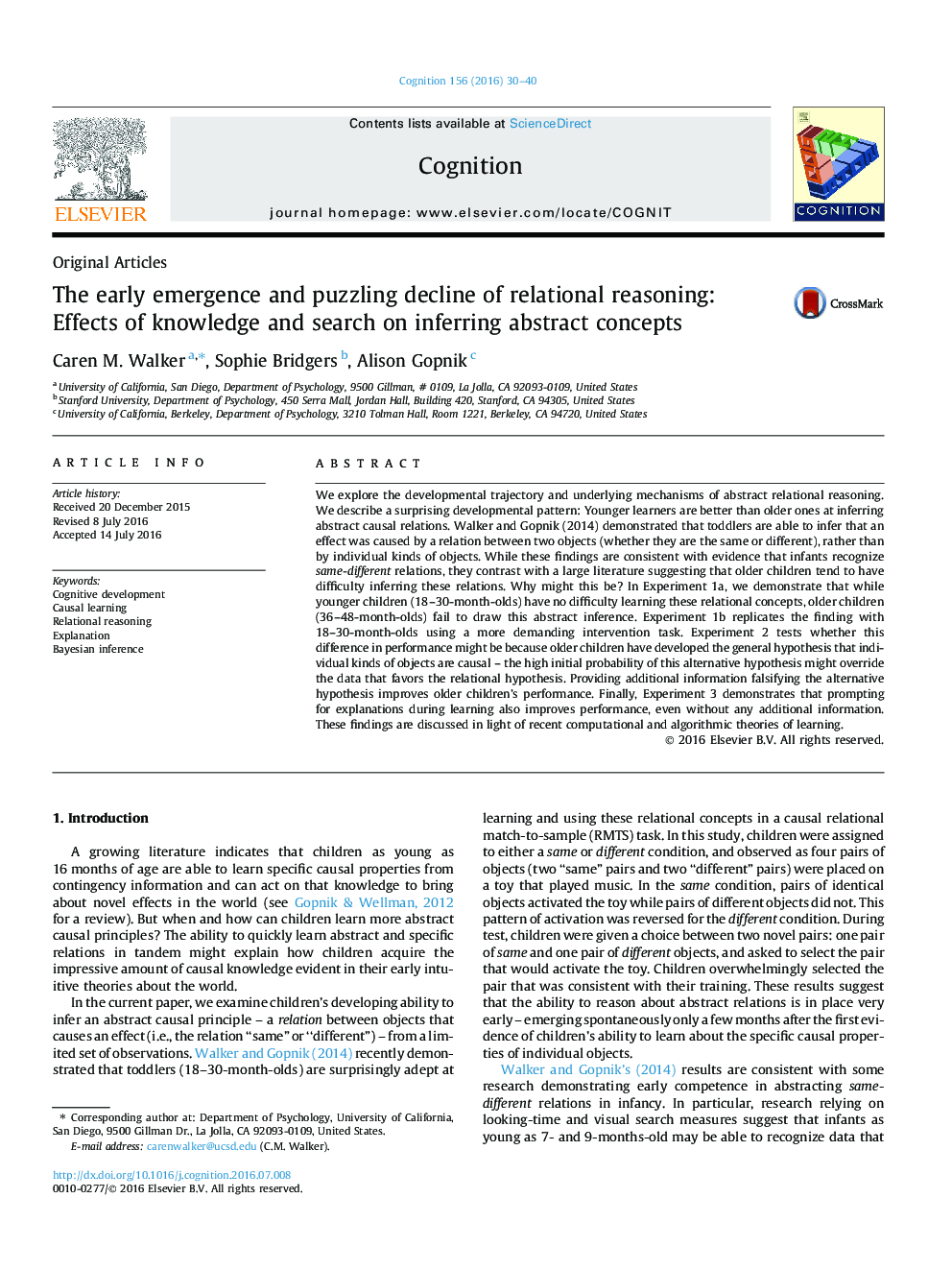| Article ID | Journal | Published Year | Pages | File Type |
|---|---|---|---|---|
| 926313 | Cognition | 2016 | 11 Pages |
•Younger learners outperform older ones at inferring abstract causal relations.•Relational reasoning need not progress in a bottom-up manner.•Older children develop a general principle to privilege individual object hypotheses.•Prompting older children for explanations facilitates relational reasoning.•The fact that younger children know less makes them more flexible learners.
We explore the developmental trajectory and underlying mechanisms of abstract relational reasoning. We describe a surprising developmental pattern: Younger learners are better than older ones at inferring abstract causal relations. Walker and Gopnik (2014) demonstrated that toddlers are able to infer that an effect was caused by a relation between two objects (whether they are the same or different), rather than by individual kinds of objects. While these findings are consistent with evidence that infants recognize same-different relations, they contrast with a large literature suggesting that older children tend to have difficulty inferring these relations. Why might this be? In Experiment 1a, we demonstrate that while younger children (18–30-month-olds) have no difficulty learning these relational concepts, older children (36–48-month-olds) fail to draw this abstract inference. Experiment 1b replicates the finding with 18–30-month-olds using a more demanding intervention task. Experiment 2 tests whether this difference in performance might be because older children have developed the general hypothesis that individual kinds of objects are causal – the high initial probability of this alternative hypothesis might override the data that favors the relational hypothesis. Providing additional information falsifying the alternative hypothesis improves older children’s performance. Finally, Experiment 3 demonstrates that prompting for explanations during learning also improves performance, even without any additional information. These findings are discussed in light of recent computational and algorithmic theories of learning.
